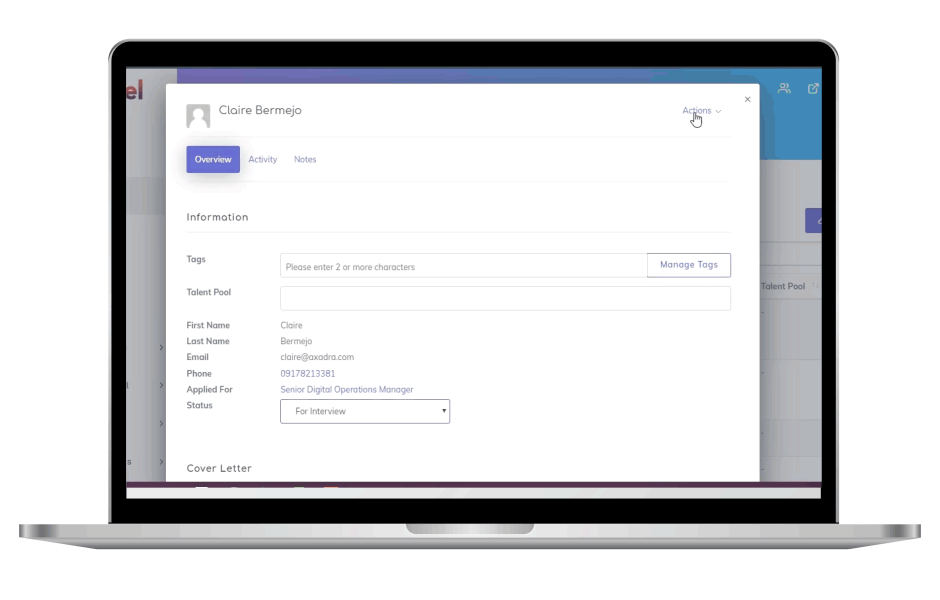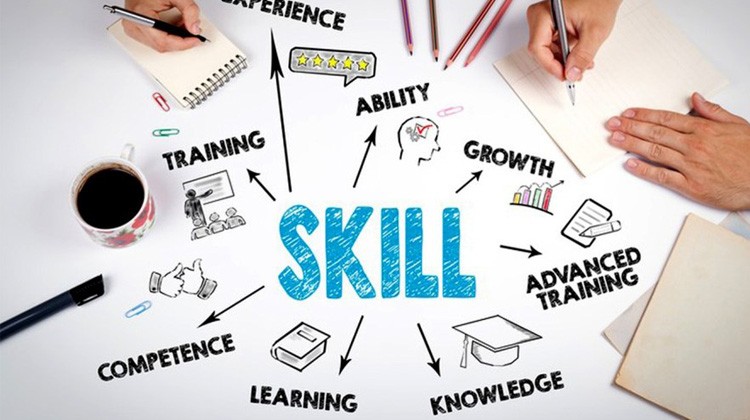The recruitment process is a very important method that allows you to find qualified candidates for your organization. This is why most companies spend a lot of resources in improving their recruitment process, including hiring the top recruiters available and investing in different technologies, such as online recruitment management software and candidate interview scheduling software.
One of the most crucial parts of this process is interviews. Recruiters often use this process to learn about candidates’ experience, skills, and personality.
Although interviewing has been proven effective for this purpose, hiring professionals often interview several applicants at a time. This means that they may have trouble objectively comparing each candidate without any tools. To solve this problem, you should start using an interview evaluation form.
What is an Interview Evaluation Form?
An interview evaluation or job interview assessment form is a type of tool that recruiters use when evaluating whether a candidate is qualified to fill an open position in an organization. It is typically used right after an applicant finishes interviewing to document how they fared during the interview, their qualifications, and how well they fit the requirements for the open position.
You should use an interview assessment form for recruitment if you are interviewing several candidates for a single position. This special tool can help you organize your thoughts about each candidate and compare notes on each one to assess them thoroughly. It will also allow you to quickly review every applicant’s strengths and weaknesses and analyze how they fared against other candidates when making a decision.
Categories of a Candidate Interview Evaluation Form
Most candidate evaluation forms have fields where interviewers can write the candidate’s name and the position in which they’re applying. There is also a space where interviewers can write their notes and comments regarding the interviewee.
However, the most important part of an interview evaluation form is the categories by which applicants are assessed. These categories can differ depending on the position the company is hiring for and what they’re looking for in a candidate.
Each category follows an evaluation system, which scales from 1 to 5. Every point on the scale is given a description to guide interviewers in rating a candidate on each category. Some of the common categories included in an employee interview assessment form are:
Education
Most companies require applicants to have completed a certain level of education. For most high-paying jobs, candidates should at least have a bachelor’s degree.
When you include this category in your interview evaluation form, you should know how to interview candidates effectively about their educational background. You should ask them thoroughly about the university or college they went to, the type of their degree, and the level of their degree. Asking the right questions about an applicant’s education allows you to determine if they have the right knowledge to fulfill the open position in your company.
Experience
Another requirement that most organizations have for their applicants is experience. This is especially important if the open position in the company is not entry-level.
As a recruiter, you should ask applicants questions about their previous work experience and assess whether it is relevant enough with regards to the current opening. Make sure to inquire about their duties in their previous work before deciding if the candidate has the skills and professional background to fill in the position they are applying for. You can also learn how to ask them common behavioral questions to have an idea of how they acted in their previous job.
Communication
This category should be included in your candidate evaluation form if you are hiring for a client-facing position in your company. Hiring an applicant with great communication skills can also be beneficial to your team members. Most of the time, great communicators are also great team players, so you won’t have to deal with any problems with your staff.
You can assess a candidate’s communication skills based on how well they answer your interview questions. To test them further, throw in some situational questions that require them to communicate with a customer or a teammate.
Skills
Perhaps the greatest criteria for hiring, a candidate’s skill is an essential category that you should include in your interview evaluation form. Since most of the positions being offered in the job market require hard skills, you need to know if an applicant has the right set of practical knowledge to fill in the opening in your company.
Even if you are only talking during the interview, you can still assess an applicant’s skills by asking them technical questions about the job. If you are looking for a software developer, you may ask the candidate to walk you through their process of developing an app or fixing a software bug. To better assess their answer, you should have some knowledge about the technicalities of the job or invite someone who holds the same or similar position in your company.
Personality
Your job interview assessment form may also include a category that focuses on an applicant’s general likeability. Assessing a candidate’s personality may help you determine if they will be a good cultural fit for your company. It will also help you see if they will interact well with your current team members.
Although you can’t really prepare a set of questions that will help you determine a candidate’s personality, the best thing you can do is observe how they are acting during the interview. Friendly applicants who are enthusiastic during the interview are often graded higher in this category. Ultimately, this depends on what your company needs and the general personality of your current team.
Tips and Guidelines in Using an Interview Evaluation Form
To ensure that you use your evaluation form effectively, follow these tips:
- Ask the right questions: your questions should correlate to your chosen categories for easier grading.
- Set the right expectations: talk with your team members and define the components of a good answer for every question that you have.
- Review: review the categories in your employee interview assessment form before every interview to ensure consistency.
- Beware of bias: educate your team members about interviewer bias to avoid it when talking with applicants.
Take Advantage of Interview Evaluation Forms
Using an evaluation form when interviewing candidates is a great way of having an efficient and objective recruitment process. This tool can help you compare candidates impartially and assess them solely based on their skills and experience. Ultimately, its most important benefit is helping you find the most qualified candidate for the open position in your company.













